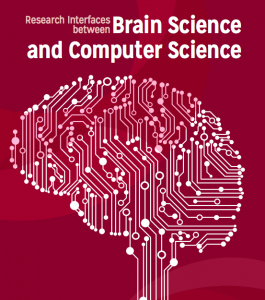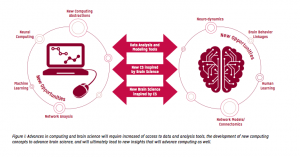 The organizing committee for the Research Interfaces between Brain Science and Computer Science (BRAIN) have released their workshop report.
The organizing committee for the Research Interfaces between Brain Science and Computer Science (BRAIN) have released their workshop report.
This two-day workshop, sponsored by the Computing Community Consortium (CCC), brought together brain researchers and computer scientists for a scientific dialogue aimed at exposing new opportunities for joint research in the many exciting facets, established and new, of the interface between the two fields. Videos of the workshop presentations as well as the presentation slides are posted on the workshop website in the agenda.
The reports suggests that the study of computing and the study of the brain interrelate in three ways, each suggesting a major research direction.
First, the experimental study of brain architecture and function is a massive-data problem. Making progress necessitates advances in computing and the realization of new computational tools.
Second, the study of efficient algorithms and the design of intelligent autonomous systems should provide new ideas and inspiration concerning brain architecture and function.
Finally, the remarkable efficiency (including energy efficiency) of the brain, once understood, may inspire radically new algorithmic or system organization approaches that could transform computing itself.
These are exactly the three bridges between brain science and computer science that are included in Figure 1 below (click to enlarge).
See the full workshop report to learn about the challenges of data, opportunities for computing, and the future of the brain and computing research.











Trackbacks /
Pingbacks